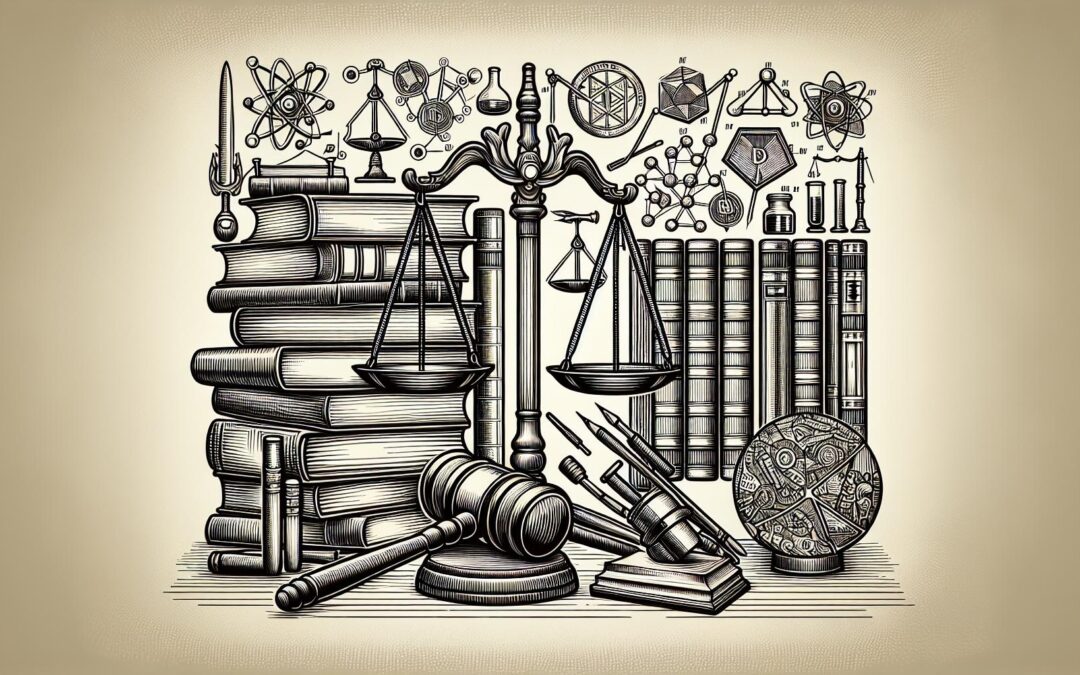In today’s digital age, the management and protection of intellectual property have become crucial for businesses worldwide. With advancements in technology, traditional methods of intellectual property management have evolved to meet the ever-changing needs of businesses. One such development is the Electronic Business Center (EBC), which offers innovative solutions for intellectual property management. In this article, we will dive into the concept of EBC and explore its role in simplifying intellectual property management. Additionally, we will discuss key terminologies related to intellectual property and highlight the benefits of utilizing EBC in this context.
Understanding the Concept of Electronic Business Center (EBC)
The Electronic Business Center (EBC) is a digital platform that provides comprehensive tools and resources for managing intellectual property. It serves as a centralized hub for businesses to handle various aspects of intellectual property, including patents, trademarks, and copyrights. EBC integrates cutting-edge technologies and streamlined processes to facilitate efficient and effective management of intellectual property assets.
Intellectual property is a valuable asset for businesses, as it represents their innovative ideas, unique products, and distinctive brand identity. However, managing and protecting intellectual property can be a complex and time-consuming task. This is where the Electronic Business Center (EBC) comes into play.
The Evolution of EBC
Over the years, the concept of EBC has evolved to keep pace with the rapid digitization of business operations. Initially, intellectual property management was a cumbersome task, involving extensive paperwork and manual processes. However, with the advent of digital technologies, EBC emerged as a solution that transformed the way businesses approach intellectual property management.
With EBC, businesses no longer have to rely on physical documentation and manual procedures. Instead, they can leverage digital platforms and online databases to access relevant information, streamline application processes, and enhance collaboration among stakeholders. This digital transformation has revolutionized the way intellectual property is managed, making it more efficient, secure, and accessible.
Moreover, EBC has played a crucial role in breaking down geographical barriers. In the past, managing intellectual property across different regions or countries was a complex and time-consuming task. However, with EBC, businesses can now manage their intellectual property assets seamlessly, regardless of their physical location. This has opened up new opportunities for businesses to expand their reach and protect their intellectual property on a global scale.
The Role of EBC in Intellectual Property Management
EBC plays a pivotal role in the effective management of intellectual property assets. It provides businesses with a centralized system to store, track, and analyze vital information related to patents, trademarks, and copyrights. By utilizing EBC, businesses can streamline their intellectual property management processes, ensuring compliance and maximizing the value of their assets.
One of the key advantages of EBC is its ability to simplify the application process for intellectual property rights. Traditionally, businesses had to navigate complex paperwork and engage with multiple government agencies to file for patents, trademarks, or copyrights. This process was not only time-consuming but also prone to errors and delays.
However, with EBC, businesses can now submit their applications online, eliminating the need for physical paperwork and reducing the chances of errors. EBC provides a user-friendly interface that guides businesses through the application process, ensuring that all necessary information is captured accurately. This not only saves time but also improves the overall efficiency of the intellectual property application process.
Furthermore, EBC enables businesses to monitor and protect their intellectual property assets more effectively. Through the centralized platform, businesses can track the status of their applications, receive notifications about any updates or changes, and take necessary actions to protect their rights. EBC also provides tools for conducting comprehensive searches and analysis of existing intellectual property, helping businesses make informed decisions about their own intellectual property strategies.
In conclusion, the Electronic Business Center (EBC) is a game-changer in the field of intellectual property management. It has revolutionized the way businesses approach the management and protection of their intellectual property assets. By leveraging digital technologies and streamlined processes, EBC provides businesses with a powerful tool to enhance efficiency, ensure compliance, and maximize the value of their intellectual property assets.
Key Terminologies in Intellectual Property
Before delving deeper into the role of EBC, it is essential to understand key terminologies associated with intellectual property. Familiarizing yourself with these terms will enable you to grasp the significance of EBC in managing intellectual property assets effectively.
Intellectual property (IP) refers to the legal rights that protect creations of the mind, such as inventions, artistic works, and symbols used in commerce. It encompasses various forms of protection, including patents, trademarks, and copyrights.
Patent: A Detailed Overview
A patent is a form of intellectual property protection granted to inventors for their inventions or discoveries. It provides exclusive rights to the inventor, preventing others from using, making, or selling the patented invention without permission. Patents play a crucial role in fostering innovation and ensuring that inventors are rewarded for their contributions.
When an inventor obtains a patent, they gain the right to exclude others from making, using, or selling their invention for a limited period, typically 20 years from the filing date. This exclusivity allows inventors to commercialize their inventions and recoup their research and development costs.
Patents are classified into different categories, such as utility patents, design patents, and plant patents. Utility patents protect new and useful processes, machines, compositions of matter, and improvements thereof. Design patents, on the other hand, safeguard new, original, and ornamental designs for an article of manufacture. Plant patents are granted for new varieties of plants that are asexually reproduced.
Trademarks and Their Importance
A trademark is a symbol, design, or expression that distinguishes one business’s products or services from those of others. It acts as a unique identifier and allows businesses to establish brand recognition and protect their reputation in the marketplace. Trademarks are vital for building customer loyalty and maintaining a competitive edge.
When a business registers a trademark, it gains exclusive rights to use that mark in connection with specific goods or services. This exclusivity prevents others from using similar marks that may cause confusion among consumers. Trademarks can be words, logos, slogans, sounds, or even colors, and they play a crucial role in differentiating products and services in the marketplace.
Trademarks can be registered at the national or international level, providing broader protection. Registered trademarks are typically denoted by the ® symbol, while unregistered trademarks may be identified with the ™ symbol.
Understanding Copyrights and Their Role
A copyright is a legal protection granted to authors, artists, and creators of original works. It gives them exclusive rights to reproduce, distribute, display, or perform their creations. Copyrights safeguard the interests of creators by preventing unauthorized use or duplication of their work, fostering creativity, and encouraging the production of original content.
Copyright protection covers a wide range of works, including literary works, musical compositions, artistic creations, software code, and architectural designs. It grants the creator the exclusive right to control how their work is used and distributed.
When a work is copyrighted, it means that others cannot reproduce, distribute, or publicly display the work without the author’s permission. Copyright protection generally lasts for the author’s lifetime plus an additional period after their death, ensuring that their work is protected for future generations.
It is important to note that copyright protection exists automatically upon the creation of an original work, without the need for registration. However, registering a copyright provides additional benefits, such as the ability to sue for infringement and the establishment of a public record of ownership.
How EBC Simplifies Intellectual Property Management
Now that we have familiarized ourselves with the key terminologies, let’s explore how EBC simplifies the management of intellectual property assets.
Intellectual property (IP) is a valuable asset for businesses and individuals alike. It encompasses patents, trademarks, and copyrights, which protect innovative ideas, brand identities, and creative works. Managing these assets effectively is crucial for maintaining a competitive edge and safeguarding one’s intellectual creations.
EBC’s Role in Patent Application and Tracking
Prior to the advent of EBC, the process of patent application and tracking was time-consuming and labor-intensive. However, EBC simplifies these processes significantly by providing a centralized platform for filing patent applications, tracking their progress, and accessing relevant documentation.
With EBC, inventors can submit their patent applications electronically, eliminating the need for physical paperwork and reducing the chances of errors or misplacements. The platform also streamlines communication between inventors, patent examiners, and legal professionals, ensuring a smooth and efficient application process.
Moreover, EBC’s tracking feature allows applicants to monitor the progress of their patent applications in real-time. They can receive notifications about any updates or actions taken by the patent office, ensuring transparency and enabling timely responses.
EBC’s Contribution to Trademark Management
Trademark management involves numerous tasks, such as conducting trademark searches, filing applications, and monitoring infringements. EBC provides businesses with the necessary tools to streamline these activities.
Through EBC’s comprehensive databases and search functionalities, businesses can conduct thorough trademark searches to identify potential conflicts. This helps them make informed decisions and avoid potential legal disputes in the future. The platform also provides access to historical trademark data, allowing businesses to assess the viability and uniqueness of their proposed trademarks.
Furthermore, EBC simplifies the filing of trademark applications by digitizing the process. Businesses can submit their applications online, reducing paperwork and enhancing efficiency. The platform also ensures that all required information is included, minimizing the chances of rejection or delays.
Copyright Management through EBC
EBC simplifies copyright management by providing a centralized repository for storing and managing copyrighted works. Creators can register their works online, ensuring protection and making it easier to enforce their rights.
By utilizing EBC’s registration feature, creators can establish a clear record of their ownership and the date of creation. This strengthens their legal position in case of any copyright disputes. Additionally, the platform offers tools for monitoring and detecting potential copyright infringements, enabling timely action to safeguard the creator’s work.
With EBC, creators can have peace of mind knowing that their intellectual creations are securely stored and protected. The platform’s advanced security measures prevent unauthorized access and ensure that only authorized individuals can access copyrighted materials.
The Benefits of Using EBC for Intellectual Property Management
Incorporating EBC into intellectual property management processes offers numerous benefits for businesses. Let’s explore some of these advantages:
Streamlining Processes with EBC
EBC streamlines intellectual property management processes, eliminating manual tasks and reducing administrative burdens. It automates routine tasks, such as document filing and record-keeping, allowing businesses to focus on strategic activities. This enhanced efficiency leads to time and cost savings, ultimately contributing to overall operational effectiveness.
Enhancing Efficiency with EBC
By utilizing EBC, businesses can streamline collaboration among stakeholders involved in intellectual property management. EBC fosters real-time communication, enabling seamless collaboration between inventors, legal professionals, and other key stakeholders. This enhanced collaboration leads to quicker decision-making, faster processing times, and improved overall efficiency.
Ensuring Compliance with EBC
EBC provides businesses with tools and resources to ensure compliance with intellectual property laws and regulations. It offers built-in checks and balances, guiding businesses through the necessary steps and requirements for intellectual property management. This ensures that businesses operate within legal boundaries and reduces the risk of infringement or legal disputes.
In conclusion, the Electronic Business Center (EBC) plays a substantial role in simplifying intellectual property management. By leveraging EBC’s innovative tools and resources, businesses can streamline their processes, enhance efficiency, and ensure compliance with intellectual property laws. The evolution of EBC and its integration into business operations have revolutionized the way intellectual property assets are managed. Understanding key terminologies such as patents, trademarks, and copyrights is crucial for comprehending the significance of EBC in this context. By embracing EBC, businesses can unlock the benefits of streamlined processes, enhanced efficiency, and assured compliance, ultimately maximizing the value of their intellectual property assets.











